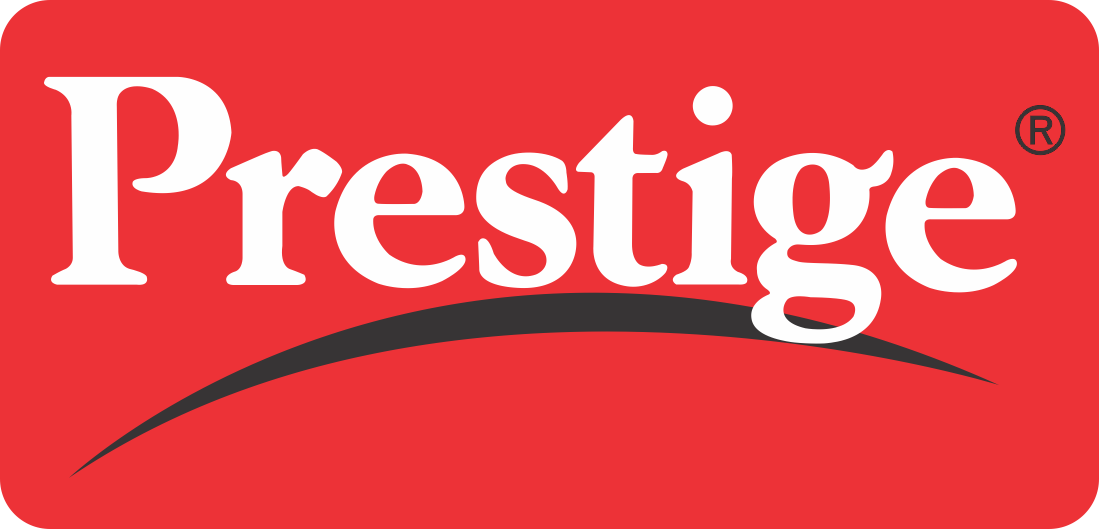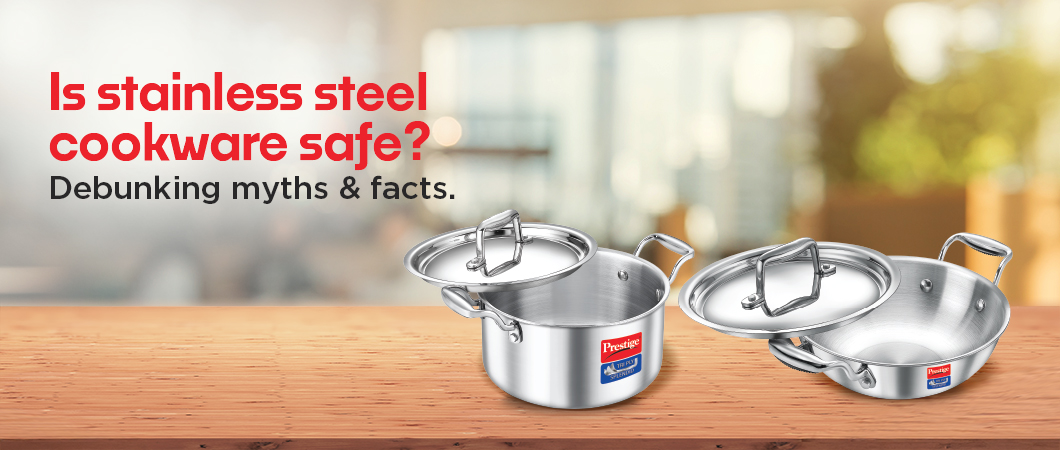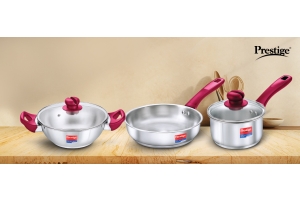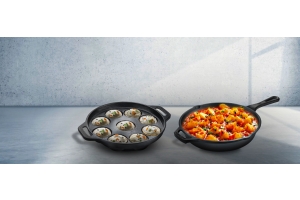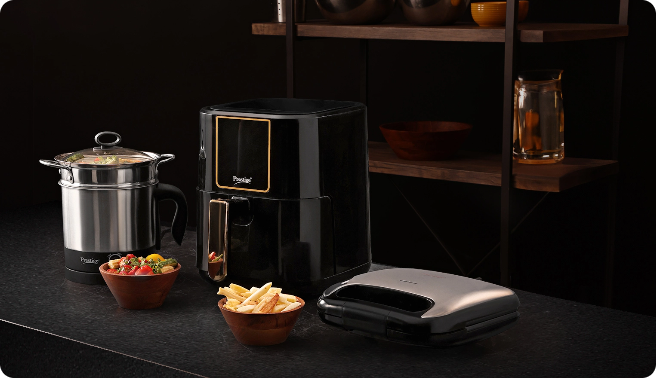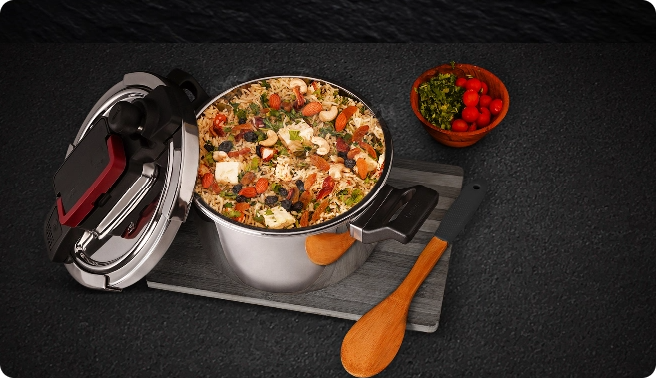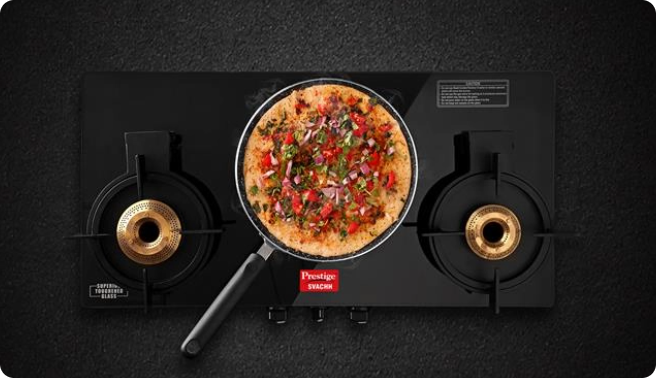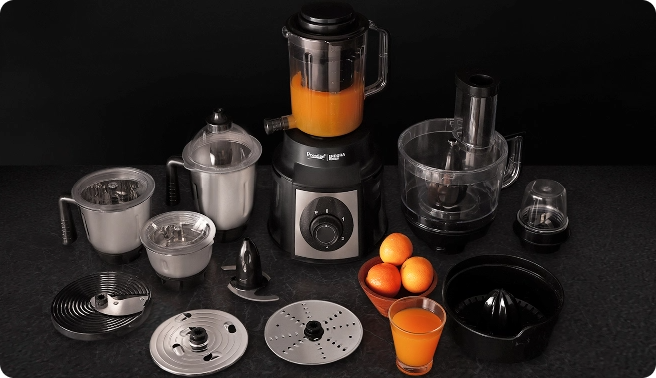When it comes to choosing cookware, stainless steel is often hailed as a safe and versatile option. However, myths and misconceptions surrounding its safety can cloud our judgment. In this article, we'll delve into what makes stainless steel cookware a popular choice in kitchens while addressing common questions about its performance.
Understanding Stainless Steel Cookware:
Stainless steel cookware is valued for its unmatched strength and adaptability. It handles high heat with ease, is dishwasher-safe, and compatible with various cooking surfaces. A reliable choice for home cooks and chefs, it supports diverse cooking techniques while maintaining its pristine condition for years.
Is Stainless Steel Cookware Safe? Is Stainless Steel Cookware Good? The Truth about Safety:
Prestige stainless steel cookware is non-reactive with acids or alkalis, durable, easy to clean, aesthetically pleasing, and compatible with any cooktop including induction. It makes pots and pans that are convenient to make all kinds of delicacies in. However, despite its many benefits, its safety is questioned, often considering the threat of nickel leaching.
Let’s look at some of these concerns closely and how each can be addressed.
-
PFOA-Free: Unlike pots and pans that may contain PFOA (a chemical linked to health concerns), stainless steel cookware is free from this substance. This makes it a safer option. Hence, stainless steel cookware is safe for health.
-
Durability: Stainless steel is extremely long-lasting. When maintained properly, stainless steel can sustain more than a decade of intensive cooking, proving to be a great advocate for eco-friendly living. Prestige provides a 15 year warranty on its stainless steel cookware range.
-
Aesthetic addition to the kitchen: Stainless steel cookware elevates your kitchen with its sleek, polished finish and modern, timeless appeal.
-
Superior Heat Distribution: Prestige brings you Triply Stainless Steel cookware with three layers for unmatched heat distribution and efficient cooking.
10 Safety Tips for Stainless Steel Cookware:
-
Preheat Properly: Remember to preheat all your stainless-steel pans before putting any oil or food in them, as it avoids sticking and ensures an even distribution of heat. The water droplet test can help—if water beads and dances around on the surface, it’s ready to cook.
-
Avoid High Heat for Long Periods: Avoid cooking on high heat for longer periods as it may ruin the pot. Medium to medium-high heat should suffice to avoid warping.
-
Regularly Inspect for Damage: You should inspect your cookware appliances regularly to avoid warping or deep scratches that may pose a danger during cooking.
-
Clean Correctly: Avoid cleaning your stainless steel pots with hard sponges and strong chemicals. Do not use steel wool since it damages the surface and makes it less shiny. If the stain is too stubborn, you can use baking soda and water for easy removal.
-
Avoid Soaking: Prolonged soaking can cause stains and discolouration. Instead, clean promptly after use to maintain the cookware’s appearance.
-
Store Properly: Whenever you stack pots and pans, place linen in between them to avoid any scratches. These measures are very important in the storage of your cooking pots and pans.
-
Replacement: If your stainless-steel cookware has significant scratches or is showing signs of wear & tear, it may be time to invest in a new one. Quality cookware can be significant to your food safety.
Conclusion:
Stainless steel cookware stands out as a safe, durable, and versatile option for any kitchen. Understanding its properties and potential concerns can help you navigate the myths surrounding its use. Following all safety tips, you can enjoy cooking with a Prestige stainless steel cookware set while ensuring your culinary creations are delicious and safe.
FAQs:
1. Are stainless steel cookware safe for all types of cooking?
Yes, stainless steel cookware is safe for a wide range of cooking methods, including frying, boiling, or braising. Just be mindful of the heat settings and ensure you have the right utensil type to suit the cooking type. This means using a deep kadhai for frying instead of a shallow pan, and so on.
2. Can stainless steel cookware release harmful substances into food?
Stainless steel is non-reactive, and it does not leach harmful substances into food under normal cooking conditions. The risk is minimal, especially while using high-quality cookware.
4. Is it safe to use stainless steel cookware on an induction cooktop?
Yes, stainless steel induction cookware is compatible with induction cooktops, provided it has a magnetic base. Always check the manufacturer's guidelines for compatibility.
5. How can I restore shine to my stainless-steel cookware?
To restore shine, try a mixture of vinegar and baking soda or specialised stainless-steel cleaners. Regular cleaning and maintenance can also keep your cookware looking new.
6. Which is the best stainless steel cookware online?
You can simply log on to the Prestige online store and check our variety of cookware and home appliances right from the comfort of your home.
